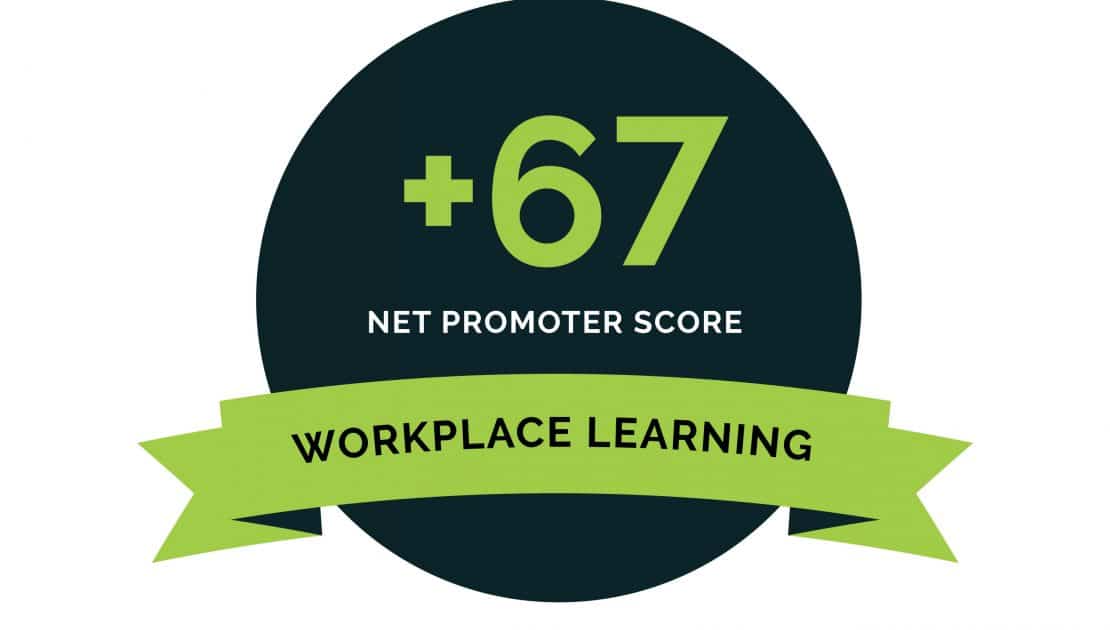Why Our NPS Score of 76 Matters (And What It Means for Your Learning Strategy)

We don’t usually boast about awards or metrics. But when we recently calculated our Net Promoter Score and saw 76 staring back at us, even our naturally modest team had to admit—that’s something worth sharing.
Here’s the thing about NPS scores. Most companies would be thrilled with 50. Anything above 70 is considered world-class. So when you hit 76, you’re not just doing well – you’re competing with the likes of Amazon, Tesla, and other brands known for exceptional customer experiences.
But what does this actually mean? And more importantly, what does it tell you about choosing a learning management system partner?
What Is NPS, Anyway?
Net Promoter Score isn’t some vanity metric marketers dreamed up. It’s actually quite brutal in its simplicity. You ask customers one question: “On a scale of 0-10, how likely are you to recommend us to a colleague?”
Score 0-6? You’re a detractor. 7-8? Passive. 9-10? Promoter.
Then, you subtract the percentage of detractors from promoters. That’s it—simple math that reveals whether people genuinely rate your service or are just being polite.
The score can range from -100 (everyone hates you) to +100 (universal love). According to research from Qualtrics, anything above 0 is technically “good” because you’ve got more promoters than detractors. Above 50 is excellent. Above 70? You’re in rarefied air.
At 76, we’re not just above average. We’re in the same bracket as top consulting and technology companies that have built their entire reputation on customer satisfaction.
Why This Score Actually Matters to You
Look, we could spend all day talking about how brilliant this makes us feel. But that’s not particularly useful for someone trying to decide which LMS provider to work with.
Let’s talk about what this score represents in practical terms.
It means our clients are genuinely happy. Not satisfied. Not “yeah, it’s fine.” Actually happy enough to stake their professional reputation on recommending us to peers. That’s a high bar.
It means we’re solving real problems. You don’t get scores like this by delivering mediocre solutions with fancy marketing. You get them by understanding what keeps L&D professionals up at night and actually fixing those problems.
It means we’re consistent. One brilliant project doesn’t create a 76 NPS. You need systematic excellence across hundreds of implementations, thousands of interactions, and years of support. Our clients aren’t reviewing a single transaction – they’re reviewing the entire relationship.
What Our Clients Tell Us
When we dig into the feedback behind that 76, certain themes keep appearing. And they’re worth sharing because they show what we’ve prioritised over our 20+ years in business.
Partnership, Not Vendor Relationships
This comes up constantly. Clients don’t feel like they’re dealing with a faceless software company. They mention knowing their account manager’s name, getting responses within hours (not days), and having someone who actually understands their business challenges.
When you’re implementing something as critical as an LMS – whether it’s our flagship Totara Learn LMS or a bespoke solution – that relationship matters enormously. Technical specifications only get you so far. You need a partner who’ll work with you when things get complicated.
Tailored Solutions That Actually Fit
We don’t do cookie-cutter implementations. A retail client has completely different needs from someone in manufacturing. Your compliance requirements, user base, and existing tech stack all influence what “success” looks like.
Take our manufacturing LMS solutions, for example. We’re not trying to force a corporate training platform into a factory environment. We’re building systems that work on the shop floor, handle safety certifications properly, and integrate with your existing ERP systems.
That level of customisation isn’t easy. It takes time, expertise, and genuine understanding of different industries. But it’s what stops clients from fighting against their LMS and helps them actually achieve their training goals.
Support That Goes Beyond Ticket Management
According to research on NPS benchmarks, one of the biggest factors separating good scores from great scores is ongoing support quality. You can deliver a perfect initial implementation, but if you disappear afterwards, your NPS will tank.
We’ve deliberately built our business around post-launch support. When clients have an issue at 3 pm on a Friday, they’re not stuck with a chatbot or a ticketing system that promises a response “within 48 hours.” They’re talking to someone who knows their system, understands their goals, and can fix the problem.
It’s not cheap or easy to deliver, but it’s why clients stick with us for years and recommend us to others.
The Reality Check: What 76 Doesn’t Mean
We’re proud of this score, but let’s be honest about what it doesn’t guarantee.
It doesn’t mean we’re perfect. We’ve had projects that didn’t go entirely smoothly, and we’ve made mistakes. The difference is how we handle them—which is why some of our strongest client relationships actually started with problems we fixed.
It doesn’t mean we’re right for everyone. If you need a basic, plug-and-play LMS for a small team with simple requirements, we’re probably overkill. Our sweet spot is organisations that require sophisticated, scalable solutions with proper support.
It doesn’t mean we’re resting on our laurels. The minute you start believing your own press releases, you’re finished. This score is a benchmark, not a destination. We’re already working on improvements based on feedback from clients who gave us 7s and 8s – the passives we want to turn into promoters.
What This Means for Your Decision
If evaluating LMS providers, don’t just ask about features and pricing. Ask about their NPS. Most companies won’t tell you, which tells you something in itself.
Then dig deeper. Ask to speak with actual clients, not just cherry-picked references. Look at how long their typical client relationship lasts. Check whether they have offices and teams in your region who can provide proper support.
According to research, the average NPS for B2B software companies hovers around 30-40. If a potential partner won’t share their score or if it’s significantly below that, you need to ask why.
Numbers don’t lie. An NPS of 76 says that when our clients finish a project, implement their LMS, and run it for months or years, they’re still happy enough to recommend us. That’s a good indicator of what your experience is like.
The Bottom Line
We’ve worked with over 4,000 clients globally, from massive enterprises to growing organisations. We’re Platinum Totara Partners with offices across the UK, US, and Poland. We’ve won awards and built systems for the world’s biggest brands.
But honestly? That NPS score of 76 tells you more about working with us than anything else.
It says that when the implementation is done, the training is delivered, and real people are using the system every day, our clients are genuinely happy—happy enough to put their reputation on the line by recommending us to colleagues.
We’re most proud of that —not the technology (though that’s excellent), not the awards (though they’re nice), but the fact that we’ve built a business where clients become advocates.
If you’re looking for an LMS partner who’ll still make you happy two years later, that’s probably worth considering.
Want to see what a world-class LMS implementation looks like? Contact our team to discuss your specific requirements. We’ll be honest about whether we’re the right fit because maintaining that 76 depends on only taking on projects we know we can deliver brilliantly.
